
The things you didn't know about
The Job of an Animation Director
Production Works Gallery opens each year under the theme of “Admiration for Anime Creation”. The main topic in 2020 was “The things you don't know about the job of an animation director”. Its goal was to spotlight director as an occupation by interview footage and public seminars by famous anime directors themselves. It is unfortunate that this opportunity was lost. However, through this website we would like to show you a part of this year's PWG including 10 questions we asked the directors, that approach the origin of each director and their creativity.
What does an animation director do?
Animation director is a chief of production. Their biggest job is to keep a clear image of what kind of product is being created and giving directions to the staff. They must communicate with each staff to share that image and guide them to their tasks. When a complete work is delivered, animation director must judge whether that piece is good to go or not, and request for retake if necessary. By repeating this process, they lead the entire work to the direction where they should be going for.
How is it different from a producer?
A producer is responsible for the entire project, including its business aspect. Their role is to plan a budget, set the target audience, and ensure a proper revenue. Those that are credited as “animation producers” are also responsible for budget use, staff planning and schedule management. Directors, on the other hand, comply with the producer’s plan, and relying on their help proceed with the actual creation of the anime.
<Director’s Job ①>
Meeting with main staff members and determining the direction of the work.
-
- Scriptwriting
-
Conducting screenplay meetings with directors, screenwriters, and producers to complete the script. It is an important phase to create the basic structure of the work.
-
- Character Design
-
Making orders for characters by, for example, handing out a memorandum of understanding. The illustration style that is determined during this process will set the mood of the entire work.
-
- Art Director
-
In order to determine what kind of background is appropriate for the upcoming work, this role conducts discussions for stage setting (art setting), which is equivalent to props, as well as the style of background art.
-
- Filming
-
Filming is an important task that determines the overall look of the screen. It also determines, through constant discussions, what kind of image style is fit for the work.
-
- Sound
-
Casting to select voice actors that fit the characters, as well as ordering music that determines the atmosphere of the work. This part of the directors' work involves direct discussions with sound directors.
<Director’s Job ②>
Actual visual making
-
- Storyboard
-
Storyboard is a process of deciding what screen sequence should be performed. It is a highly important work that creates the base of making anime.
-
- Key Animation and Art Check
-
This process involves a final check to see if the complete work based on storyboard is acceptable. The final check comes after the approval of key animation director and art director.
-
- Rush Check
-
Checking to make sure there are no mistakes in each completed cut and the finished work is all according to how it is imagined.
-
- Editing
-
During the editing works, the length of each cut is adjusted by one frame (1/24 second), and the timing of dialogue and actions is readjusted, to create a more natural flow of the work.
-
- Recording & Dubbing
-
This task involves dialogue recording, dubbing to add voices, sound effects, and music, all of which require constant discussions with the sound director.
Director and General Director
When the director’s workload gets too much, they may have two-person system: general director and director. Their task allocation varies from work to work, but the general director is mainly responsible for pre-production (from planning to scriptwriting) and post-production (editing, sound work). In this case, the director focuses on the part that completes the work after the storyboard.
Assistant Director
This is also a position that supports the director who is occupied with too many tasks. Again, their work allocation varies greatly from project to project, but it appears that the assistant directors often attend necessary meetings on behalf of the director and are in charge of checking/fixing storyboards.
Tetsuro Araki
-

ProfileBorn in 1976 in Saitama, Japan. His major works include “DEATH NOTE” (2006), “Guilty Crown” (2011), “Attack on Titan” (2013), and “Kabaneri of the Iron Fortress” (2016). Currently working on a new series.
<Representative Works>
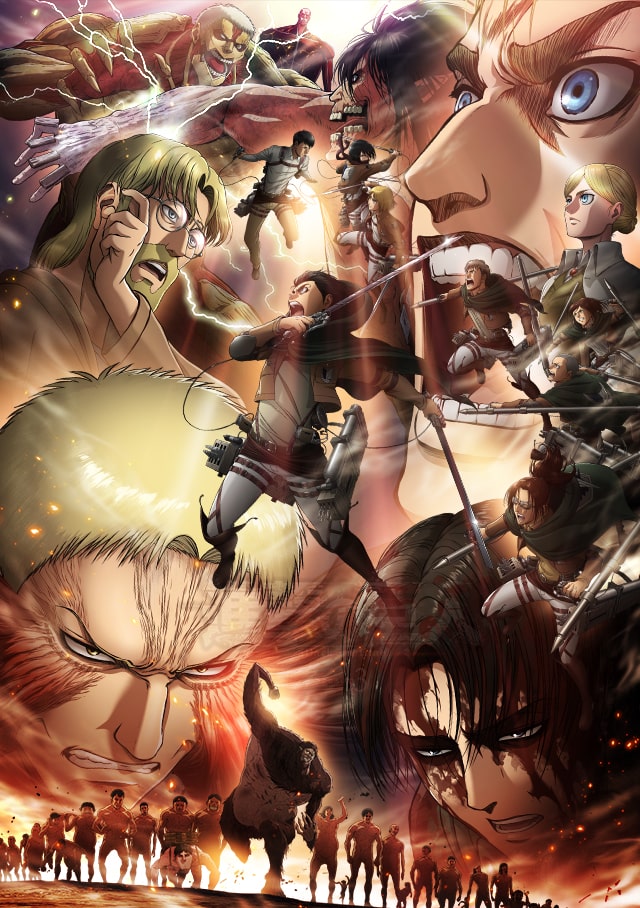
Attack on Titan
©HK/AOT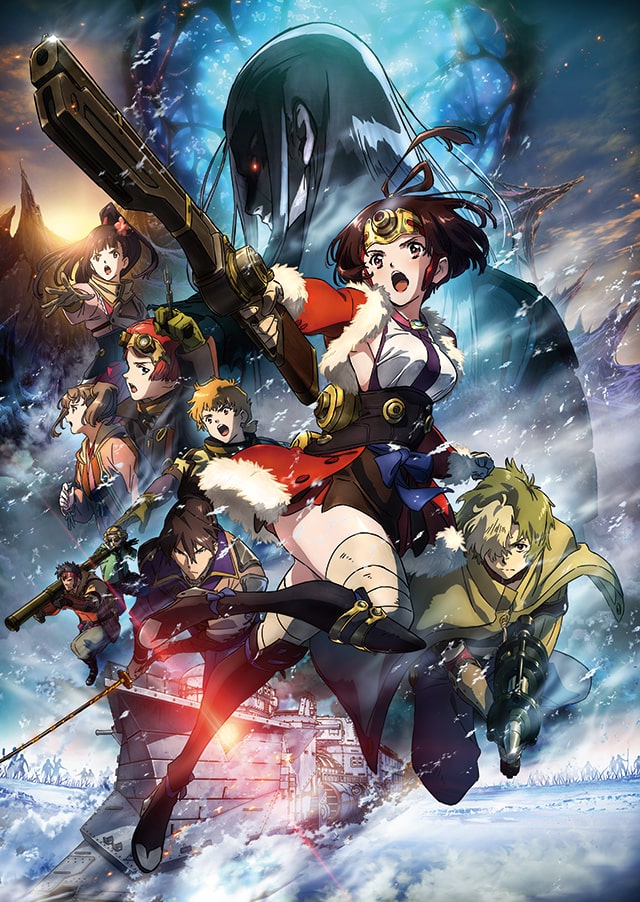
Kabaneri of the Iron Fortress
©カバネリ製作委員会
Director Interview- ①What made you decide to become an anime director?
- Back in college, I was involved in acting, manga, and making films. And I realized it was my films that always had the best reaction from people around me. That’s what made me choose the visual arts industry. The reason for choosing anime instead of live action is because I was a big fan of “Neon Genesis EVANGELION”.
- ②Can you tell us a bit about your background prior to becoming a director?
- In 1999 I started my career in Madhouse, which was based in Minami Asagaya back then. I was a production assistant. While I served in the role, I tried to spend some time drawing and, whenever I had a chance, I told people about my passion to be more involved in the creative side. It brought me some works for storyboard and technical direction. Around 2002, I was finally able to focus completely on the technical direction. While learning from the directors such as Morio Asaka and Shigehito Takayanagi, I built up experiences from technical direction for TV anime series. In 2004, I got my first job as director with OVA “Otogi-Jūshi Akazukin”. My first director work for TV series was “DEATH NOTE” in 2006.
- ③Who/what are your biggest influences?
- Yoshiyuki Tomino works in general (especially “Gundam” series) and “Neon Genesis EVANGELION”. Of course there are more but I think these are the two most important ones.
- ④What field(s) of study should an aspiring anime director focus on, and what kind of experience do they need?
- You should have a great deal of curiosity while you are student. And try to take on as many challenges as you can, with things you haven’t even tried before. I would even say that things you have no interest at the moment are the ones that become very important later on. Because I didn’t build up those experiences while I still could, later there came a moment that I thought to myself “oh no…”. I knew nothing of the world. I had no reasonable life experience. And I didn’t think twice about putting myself up on the director role, which I found it too late to be upset by the time. A guy who keeps working while embarrassing himself. That’s me.
- ⑤What are the key "policies" in your creative process?
- Give your full efforts into your works, spend as much time as you have in life, and do everything you can. By working this hard, you can finally reach an “okay” level. Only then, audience will acknowledge your work as “one of those ordinary anime you see everywhere”. It doesn’t really matter if it’s for someone else’s project. There will be no time in life for you to sit and relax. I remember what director Yoshiyuki Tomino said to me once: “Choose your life. You either train the next generation and gain respect, or you spend the rest of your whole life suffering with storyboards”. I realized that I jumped into the real crazy world.
- ⑥What's the most fun part of your job?
- It makes me feel fantastic when I genuinely like the work that’s completed. If it creates good reputation by the audience, that’s even better (interestingly these two factors seem proportional). You finished the work, you get lucky, and sometimes you get to enjoy a day like that. ...While you are working though, whatever you do results in dislikes, angers, it’s a hell on earth.
- ⑦What sorts of changes have the advances in technology, such as 3DCG and digital production tools, brought to your job as a director?
- At the moment, I see them as a good influence to keep my works out of routine. But maybe one day, they might cause the innovation to film. When that becomes real, not knowing how to use them is out of question. So, for now I try to learn those new tools, That’s all.
- ⑧How have changes in the media by which we consume anime (TV, movies, video, streaming, etc.) affected your job as a director?
- I feel that things have become more difficult for production staff members to capture the sense of successfulness. About 10 years ago, as long as you deliver the works without any problems, you could define that as a success…
- ⑨What, in your opinion, makes anime appealing as a means of expression? What are anime's greatest strengths?
- Interestingly, the fact that you can “draw well” has enough power to instantly win the heart of the audience, regardless of age and gender, education or knowledge. For anime, I believe that is the greatest strength.
- ⑩Can you give us a message to all the aspiring directors out there?
- Overall, while I feel that this job was not as pleasant as I thought it would be, I also feel it is a much more splendid job than I expected. I once heard that, when you focus and dedicate yourself to perfection, it leads to something much bigger. I may still be inexperienced but at least I’m starting to feel it. Like, “so this is what it is!” I guess that applies to the other jobs besides anime director. As I said, I’m still in the middle of my own path. Let’s do our best together.
Kyohei Ishiguro
-
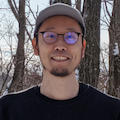
ProfileBorn in 1980 in Kanagawa, Japan. His major works include “Your Lie in April” (2014), “Occultic;Nine” (2016), and “Children of the Whales” (2017). The movie “Cider no You ni Kotoba ga Wakiagaru” is coming up in May 2020.
<Representative Works>
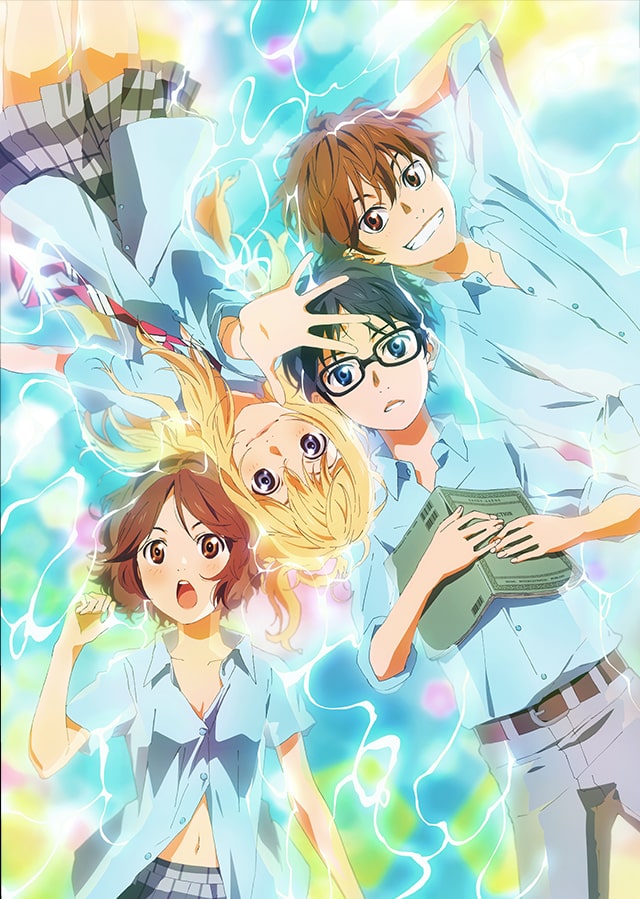
Your Lie in April
©Naoshi Arakawa.Kodansya/Your lie in April Committee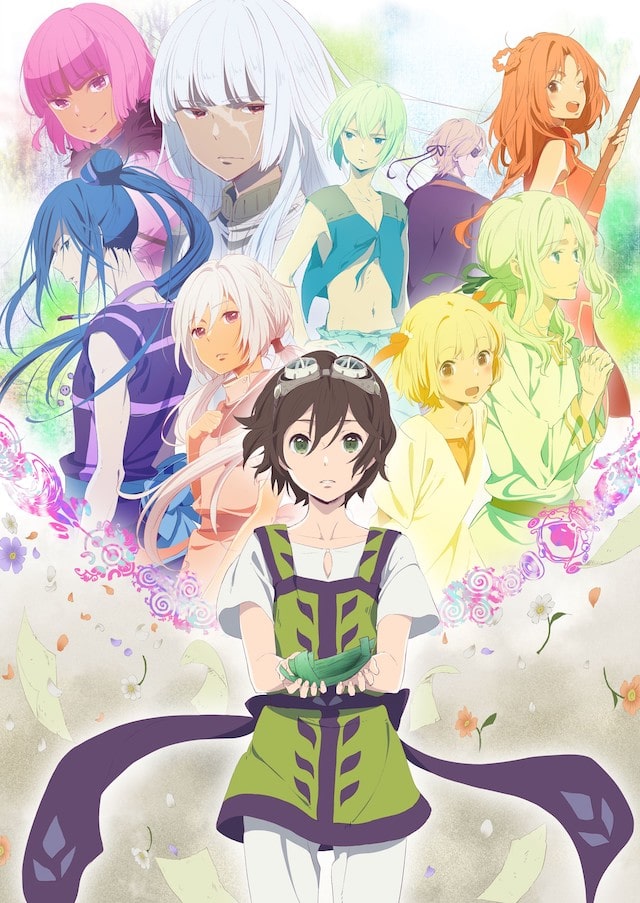
Children of the Whales
©Abi Umeda(Akitashoten)/ Children of the Whales Film Partners
Director Interview- ①What made you decide to become an anime director?
- My life's goal has always been to create things that I can show off to the entire world. So being a director wasn't something I had my heart set on in particular. I just ended up aspiring to become one because it coincided with that goal. I originally wanted to become a professional musician, but that dream never came true for me. I thought that I might be able to put my skills to good use in the anime industry, though, so I just jumped right in, and that's how it started. I've always felt that as long as I'm able to put my name on a creation and release it for everyone to enjoy, it honestly doesn't matter whether it's anime or not. In other words, I chose this job because I believed it would allow me to get closer to my goal. In my case, the things I wanted to do and the things I was most suited to doing didn't really line up. But nevertheless, I take my anime directing job very seriously! It's fun, and I give it my all every time. Although I may not have been able to make my true dream come true, I'm incredibly grateful for my position and reputation in the anime industry, and I want to live this life to the absolute fullest.
- ②Can you tell us a bit about your background prior to becoming a director?
- I played baseball through middle school. I was a first baseman. My proudest accomplishment is hitting a home run at the citywide tournament. Then from high school through college, I immersed myself in music. I spent all my time at a band/music event club (CRJ-Tokyo). I went to a normal high school and college, so I've never formally studied anything related to anime or music theory. I started my career in the anime industry as a production assistant at Sunrise. After serving as a production assistant for about three years, I was able to switch to an assistant director position, which is how I got my start directing. That was in 2009. But even before then, I would draw storyboards and sketches on my own time, and try and copy composites in AfterEffects while I was still a production assistant. I worked hard to prepare to make the switch. And by the way, all of this was self-taught. For the most part, I didn't learn anything from anybody. My first ever directing job was for "Your Lie in April" in 2014. If I recall correctly, I originally got the offer for that series in October of 2011. At the time I thought "Wow, that's a long way off", but the next thing I knew the pilot episode was already airing. It kind of freaked me out.
- ③Who/what are your biggest influences?
- Movies: "Back to the Future", "Stand by Me", "Young Guns", "The Goonies", "Trainspotting", "The Shawshank Redemption", "Neon Genesis Evangelion", "Millennium Actress", "Now and Then, Here and There", "Serial Experiments Lain", "Castle in the Sky", "Zootopia", "Love Exposure", "Love & Pop", "Pornostar", "9 Souls", "All About Lily Chou-Chou", "Rashomon".
Directors: Hideaki Anno, Iwai Shunji, Sion Sono, Robert Zemeckis, Christopher Nolan, Danny Boyle
Musicians You've Probably Never Heard Of: dip, The Velvet Underground, Television, The Stars, Yura Yura Teikoku, Thee Michelle Gun Elephant, Les Rallizes Dénudés, Deerhunter, LITE, The Modern Lovers, Syd Barrett, Manuel Göttsching. - ④What field(s) of study should an aspiring anime director focus on, and what kind of experience do they need?
- You need to get into the routine of creating things. Even better if it becomes an ingrained habit. I entered this industry knowing absolutely nothing about drawing, let alone anime. I knew so little, in fact, that when I started my job as a production assistant, I still thought it was the director who drew everything. If a guy like me can make a living as an anime director, I can say with confidence that you can worry about acquiring all the knowledge and techniques to creating anime later on. More importantly, for me, I got into that "routine" I talked about through songwriting, to the point where making things felt completely natural. It was ingrained in me. Thanks to that, drawing storyboards and directing came quite naturally, and I could take on this job with full confidence (although I'm incredibly self-conscious about my drawings). So that's my biggest piece of advice. It can be anime, painting, music, writing, or anything else. Just get into that routine, preferably while you're still in school.
- ⑤What are the key "policies" in your creative process?
- To have a clear image of what I'm trying to create. A director is like the captain of a ship. You need to have a clear image of your destination, i.e. an image of the finished product. If you can't do that, your crew will just get confused. Even during the initial planning phases, the story and visual images need to be quite solidified, and I always try to share them with my staff in an easy-to-understand manner. If the ideas the staff come up with line up nicely with my image, I accept and use them aggressively, but if they don't, I toss them out straight away. Since my image is well-defined in the initial stages, my judging speed is quite fast (at least, I'd like to think so). I know in my heart of hearts that I should make an effort to be more flexible as a director. But for something like anime where you've got a large number of people collaborating on a single project, I've learned as a rule of thumb that if you're overly flexible, things don't work out very well.
- ⑥What's the most fun part of your job?
- As you know, the visuals are the main selling point of anime, so the most fun I have as a director is when beautiful piece is born from the storyboards I draw. Nothing makes me happier than that. That said, I'm not an animator, so the drawing is something that I'll never be able to achieve by myself. I have nothing but respect for all these people who are able to do what I cannot at such an amazingly high level. Other than that, I love the music in general. Of course that goes for BGM, the OP and the ED. The moment music is added to a project I'm directing, I get a little taste of what it's like to be a musician, which is always fun. As a music lover, oftentimes I find myself really getting into the technical aspects of it when I'm ordering BGM, so I worry what the composers think of me... but either way, I get to talk a lot about the music in meetings and watch the recordings, and for me that's a blast.
- ⑦What sorts of changes have the advances in technology, such as 3DCG and digital production tools, brought to your job as a director?
- As it happens, we've introduced digital animation in my latest project, but from a director's standpoint, whether you're working digitally or analog, not much changes. But 3D is a different story. For my next work we're doing a whole 3D anime utilizing full motion capture for the visuals. It definitely feels much more akin to filming live-action than making anime. Traditional anime generally uses a flow like this: scenario→storyboarding→animation. But for this project, the flow is as follows: scenario→motion capture script writing→motion capture recording→camera blocking with 3D software (storyboarding). When we're recording the mocap, I get to yell "Aaaaand... action!" and "Okay, cut!" and stuff like that, and I can watch the actors perform right in front of me. If you compare it to traditional animation, it's like night and day, which makes it interesting. The process is entirely different, but even so, the final product is still "anime". So in that sense, 3D really feels like a technological revolution.
- ⑧How have changes in the media by which we consume anime (TV, movies, video, streaming, etc.) affected your job as a director?
- When it comes to simply creating anime, the changes in media have no effect whatsoever. If anything, though, as a director I do feel the impact of the way we make announcements and the platforms where we release our work to the world. From the degree of creative freedom to differences in budget, I truly am feeling the effects in real time, and it does get me thinking. But at the end of the day, it all comes back to my initial motivation: "keep creating things and showing them off to the world". That's still my objective, and that's why I believe it's fine to not be overly sensitive to changes in media. If you want to make money in this business, you need to start by getting offers. If I want to continue getting great offers, I simply need to pour everything I have into the task in front of me.
- ⑨What, in your opinion, makes anime appealing as a means of expression? What are anime's greatest strengths?
- To me, the ability to "upgrade" reality as you see fit is anime's greatest weapon and appeal. Regardless of how detailed you want to get, you simply replace reality with drawings, i.e. upgrade it. That's my approach to creating anime. A defining trait of anime is, when you're "upgrading", you can precisely instil your ideas and messages where you see fit. With live-action, in order to create a film that bends reality, an immense amount of money, technologies, and talent is needed. In other words, you need to be on Christopher Nolan's level, otherwise the finished product won't be impactful. But on the other side of things, we have anime. Simply put, "all you need to do is draw it." When you're drawing it, you can express your emotions and intentions ("beautiful", "terrifying", "nostalgic", etc.) with color and shading. If you do it correctly, your audience will get the message directly. That's the beauty of anime, in my opinion.
- ⑩Can you give us a message to all the aspiring directors out there?
- This might come off as a bit haughty, but your objective should not be to get a nice cushy job sitting in the director's chair. But if you're passionate about wanting to create something of your own and putting it out there for the world to see, and you're striving to become a director for that reason, I understand where you're coming from. What's important is not "I want to become [x]", but rather "I can do [y]" and "I want to do [z]". If at any point your goal shifts to attaining some position, your career is as good as finished. Please keep that in mind. At the risk of sounding like a broken record, above all else I want you to continue making things. And it can literally be anything. You don't even have to show it to people. Continually creating things (to completion) is absolutely essential. Once that habit is ingrained in you, your path forward will naturally be illuminated. That's what I think. I'm living proof of that, so hopefully I sound at least somewhat convincing.
Atsuko Ishizuka
-
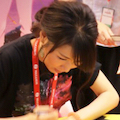
ProfileMajor works include “The Pet Girl of Sakurasou” (2012), “No Game No Life” (2014), “Hanayamata” (2014), and “A Place Further than the Universe” (2018). Currently working on a new series.
<Representative Works>
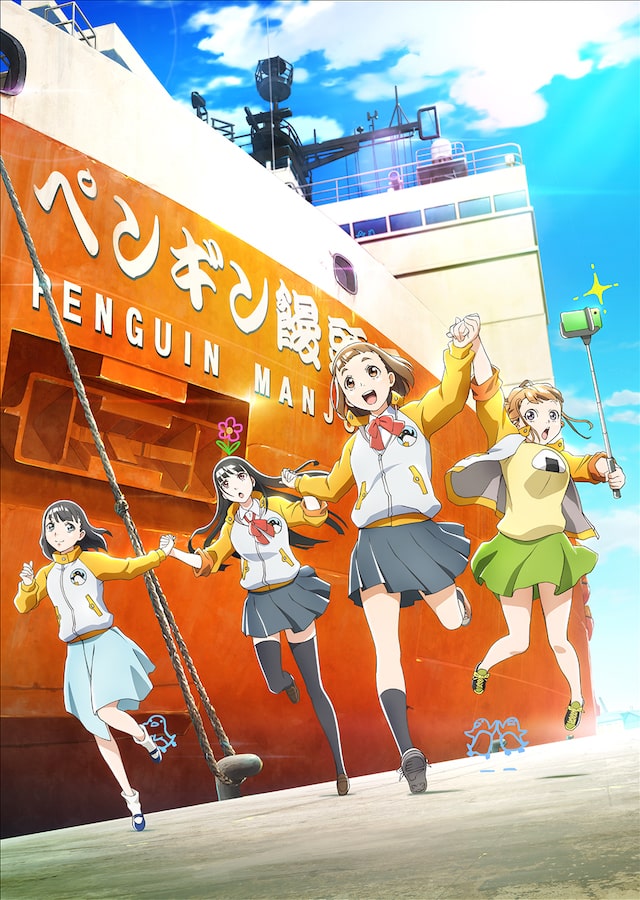
A Place Further than the Universe
©YORIMOI PARTNERS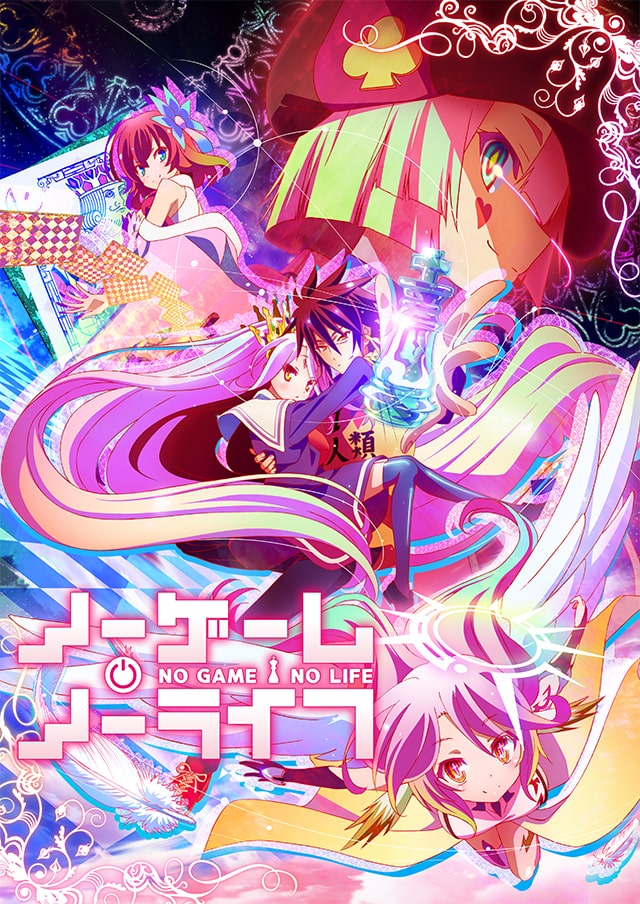
No Game No Life
©2014 Yuu Kamiya,PUBLISHED BY KADOKAWA CORPORATION MEDIAFACTORY/NO GAME NO LIFE PARTNERS
Director Interview- ①What made you decide to become an anime director?
- Watching anime was never really part of my routine, so I can't think of any special motivation. I suppose if I had to give a reason, it would be because anime is a medium that naturally combines all the things I'm most passionate about—music, visual art, and storytelling.
- ②Can you tell us a bit about your background prior to becoming a director?
- I majored in media design at Aichi Prefectural University of the Arts, and I've been involved with making anime ever since. Because I didn't have much anime knowledge, I was originally trying to get into advertising, but as I was job-hunting I gradually became more aware of the anime industry. And then I ended up getting hired at Madhouse. Right after that I was blessed with the opportunity to direct "Waltz of the Moon" for NHK's "Minna no Uta", and here we are. I have a passion for music and drawing, and I suppose I'm just continuing to do what I love most. "What one likes, one will do well", as they say.
- ③Who/what are your biggest influences?
- I know this isn't exactly an "anime", but I found Disneyland to be incredibly inspirational. That feeling of being entranced into a fantasy world, you know? That's also what I strive to achieve when it comes to creating anime. An otherworldliness that pulls you in.
- ④What field(s) of study should an aspiring anime director focus on, and what kind of experience do they need?
- Even as a director myself, that's a tough one for me to answer... This applies to any job, but I feel it's crucial to take your professional relationships seriously and build as many connections as you can. If you're overly self-centered, your colleagues will never trust you as a leader. Be observant and empathetic. This applies to people, things, and the whole world. Read between the lines, and let your passion be your guide. Sensitivity is key... probably. Let's go with that.
- ⑤What are the key "policies" in your creative process?
- To create something that moves people. Not just the people who watch your show, but the people making it, too. The secret to making something really special is for everyone working on it with you to be pleased with it as well. That is your mission as a director.
- ⑥What's the most fun part of your job?
- I've never really put much thought into that... to be honest, I think there are more stressful aspects to it than fun ones. But even so, I could never bring myself to quit, because I've got all my colleagues at my side, not to mention the fans who love our work and go out of their way to express that to us. Nothing makes me happier than hearing how our work has inspired people.
- ⑦What sorts of changes have the advances in technology, such as 3DCG and digital production tools, brought to your job as a director?
- It definitely feels like we have more options now. On one hand, that means there are now more things we have to do. And that's not just limited to directors, either. I believe everyone in the field is affected by the various advantages and disadvantages. That being said, at its core, anime is still just a bunch of drawings. If you can draw it, you can do it. In that sense, it's a near-limitless form of expression. But it's true that technological advances have allowed us to aim for even higher quality standards, and more efficiently at that.
- ⑧How have changes in the media by which we consume anime (TV, movies, video, streaming, etc.) affected your job as a director?
- With your target audience so fragmented, it certainly becomes harder to imagine their faces. But at the same time, it allows you to take on new challenges without being bound by traditional methods.
The audience also chooses whatever anime as they please instead of looking at brands and such.
If that's the case, it means that us creators can also take on new challenges, even personal ones regardless of the size of the projects. As a business, our job has indeed become difficult. But I assume we're in a new pioneering phase. - ⑨What, in your opinion, makes anime appealing as a means of expression? What are anime's greatest strengths?
- I touched upon this a bit earlier, but anime's greatest strength lies in the fact that "as long as you can draw it, you can express anything". Also, there's much more to animation than the anime you're used to seeing on TV. Even live-action is just a giant combination of still frames. And if you doctor those frames up a bit, it can become animation. The same goes for claymation. Not to mention 3D technology, which is developing quite rapidly. In my mind, anime is a medium that allows you to continually pursue new ways to express yourself.
- ⑩Can you give us a message to all the aspiring directors out there?
- If you love anime, I'd actually recommend you explore as many other mediums as you can. Because you've already absorbed a lot of anime subconsciously, since you like it so much. So please try to branch out and enjoy some other worlds as well.
Kenji Kamiyama
-
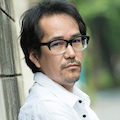
ProfileBorn in 1966 in Saitama, Japan. His major works involve “Ghost in the Shell: Stand Alone Complex” series (2002), “Moribito: Guardian of the Spirit” (2007), “Eden of the East” (2009), and “Napping Princess: The Story of the Unknown Me” (2017). His latest work is “Ghost in the Shell: SAC_2045”, coming up on Netflix in April 2020 (co-directed with Director Aramaki)
<Representative Works>

Ghost in the Shell: Stand Alone Complex
©Shirow Masamune-Production I.G/KODANSHA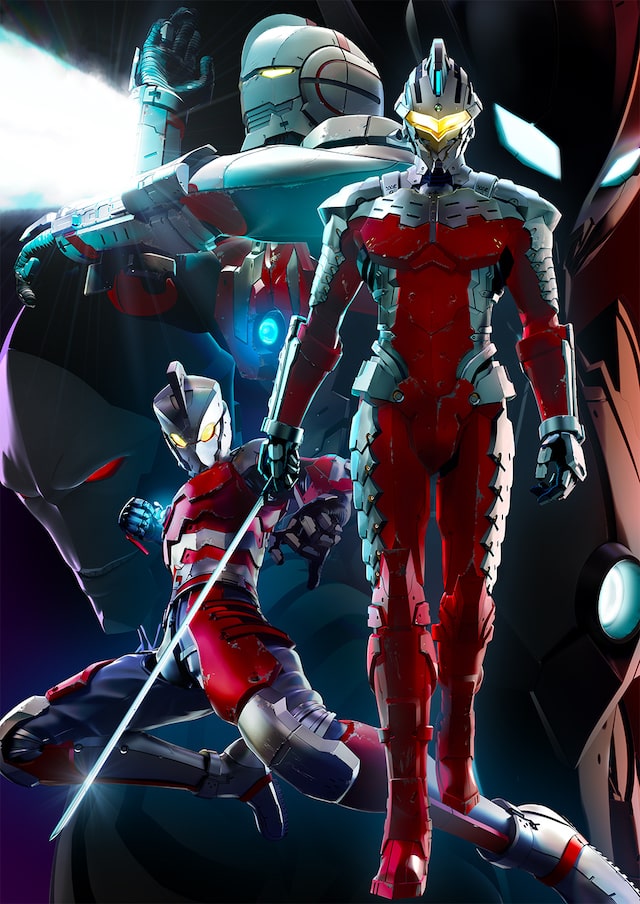
『ULTRAMAN』
©TSUBURAYA PRODUCTIONS ©Eiichi Shimizu, Tomohiro Shimoguchi ©ULTRAMAN PRODUCTION CONSORTIUM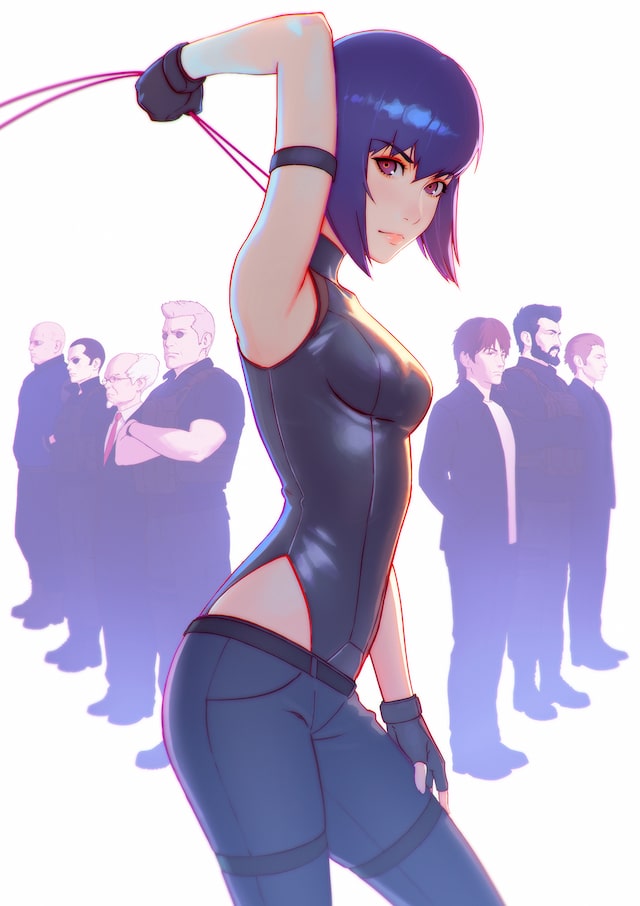
Ghost in the Shell: SAC_2045
©Shirow Masamune, Production I.G/KODANSHA/GITS2045
Director Interview- ①What made you decide to become an anime director?
- I didn't exactly want to become a director. Rather, there was a piece I wanted to create, and the only way to do it was to become an animation director.
- ②Can you tell us a bit about your background prior to becoming a director?
- I broke into the anime industry as a member of background artists, but I always had my eye on the director role, so while I was serving as art director I was writing proposals and scripts at the same time in order to prepare. And those preparations really came in handy once I built my career as a director.
- ③Who/what are your biggest influences?
- Directors: Yoshiyuki Tomino, Mamoru Oshii, Steven Spielberg.
Films: "Star Wars", "Mobile Suit Gundam" series. - ④What field(s) of study should an aspiring anime director focus on, and what kind of experience do they need?
- First and foremost, watch lots of movies. Then I recommend choosing just one of them and trying to imitate it 100%. More specifically, take that one movie and try to write a script of the whole thing. Just by doing that, I think you'll gain an understanding of what you are and are not capable of at this moment, and what you need to do to improve.
- ⑤What are the key "policies" in your creative process?
- Always being conscious of the fact that you're making something for an audience to watch.
- ⑥What's the most fun part of your job?
- Seeing the audience enjoy my work is definitely the most fun part.
- ⑦What sorts of changes have the advances in technology, such as 3DCG and digital production tools, brought to your job as a director?
- The basic aspects of the job haven't changed, but as far as the new technology goes, I believe when you input something, it's very important to have a firm understanding of what the output will be. And you must always be open to learning new things.
- ⑧How have changes in the media by which we consume anime (TV, movies, video, streaming, etc.) affected your job as a director?
- I don't think much has changed for me. Although the media may change, a director's job doesn't.
- ⑨What, in your opinion, makes anime appealing as a means of expression? What are anime's greatest strengths?
- Compared to other art forms, I believe anime is able to more easily transcend racial and cultural barriers.
- ⑩Can you give us a message to all the aspiring directors out there?
- I believe directing is a profession meant for people who never give up to the very end. The single piece of advice I'd give to anyone striving to become a director would be to find a mentor. Anyone is fine. They don't even need to be someone who teaches you directly. Just pick someone you look up to, refer to them as your "master", and learn everything you can from them, and that will do just fine.
Yoichi Fujita
-

ProfileBorn in 1978 in Hyogo, Japan. His major works involve “Gintama” (Director: 2008-2015), “Good Luck Girl!” (2012), “Osomatsu-san” (2015), and “ClassicaLoid” (2016). Currently working on a new series.
<Representative Works>
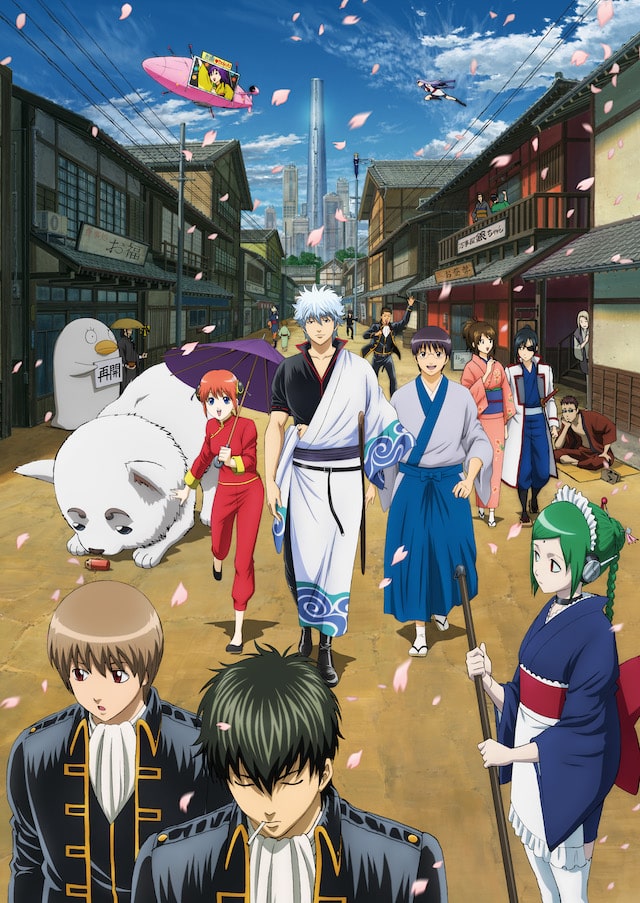
Gintama
©HIDEAKI SORACHI/SHUEISHA,TV TOKYO,DENTSU,BNP,ANIPLEX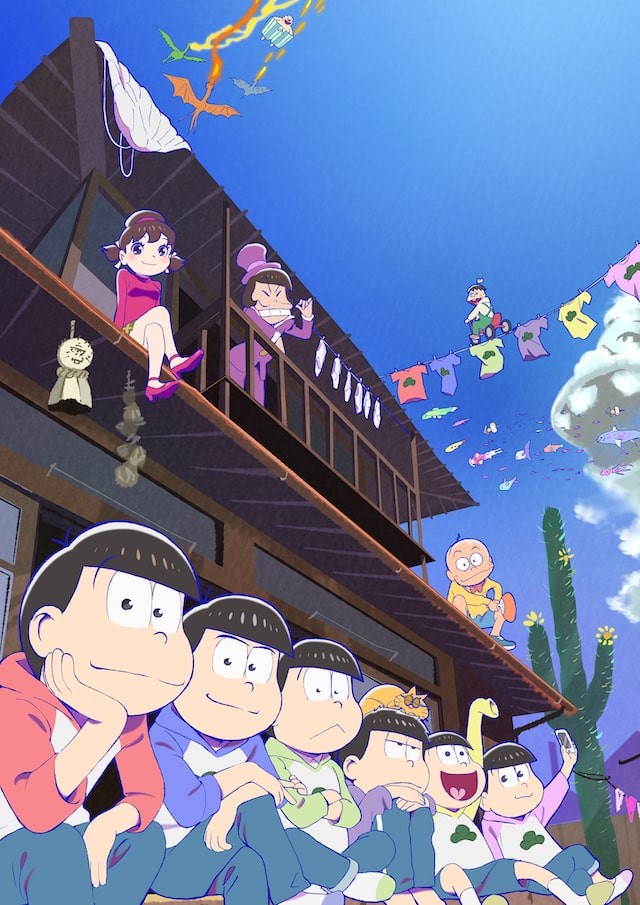
Mr.Osomatsu
©Fujio Akatsuka/Mr.Osomatsu-Project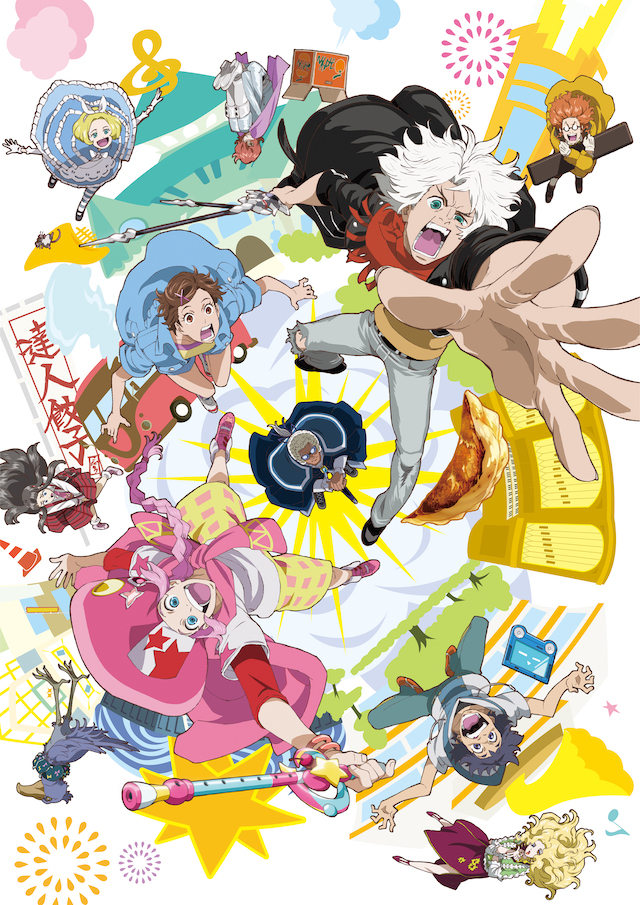
ClassicaLoid
©BNP/NHK・NEP
Director Interview- ①What made you decide to become an anime director?
- I chose to become a director after nonchalantly selecting it by process of elimination of all my options at the time. But I did have a vague idea as early as elementary school that I wanted to do something TV-related.
- ②Can you tell us a bit about your background prior to becoming a director?
- I majored in Sociology/Communications during my university years. I graduated during the employment ice age and somehow stumbled into the anime industry and joined a production company called Sunrise. There I served as a production assistant for the "Inuyasha" anime. Then I realized that rather than ordering people around, I enjoyed doing things hands-on myself, so I switched to directing. After working on several projects and episodes for three years, I got an offer to helm the animated series of Gintama, and here I am.
- ③Who/what are your biggest influences?
- "Tetsuo: The Iron Man", "Jazz Daimyo", "Patlabor: The Movie".
- ④What field(s) of study should an aspiring anime director focus on, and what kind of experience do they need?
- Manga, novels, anime, live-action, radio, theater, sports, music, pop culture, anything. It doesn't have to be the classics either. Whatever catches your interest, try and absorb as many, and as wide a variety of, that thing as possible. Anything you can get your hands on. I'm still doing it with the huge collection of things I've been exposed to since I was a student.
- ⑤What are the key "policies" in your creative process?
- We're creating entertainment, so let's have as much fun as possible! Making things can be incredibly draining; it comes with the territory.
- ⑥What's the most fun part of your job?
- The moment when, after all the staff combines their efforts, you create an anime that completely surpasses your expectations. And then when you get to show it off to your audience.
- ⑦What sorts of changes have the advances in technology, such as 3DCG and digital production tools, brought to your job as a director?
- I'm an old analog guy getting left in the dust, so I have absolutely no idea.
- ⑧How have changes in the media by which we consume anime (TV, movies, video, streaming, etc.) affected your job as a director?
- There are so many ways to watch now that I try not to think about it too much and just make things as I see fit.
- ⑨What, in your opinion, makes anime appealing as a means of expression? What are anime's greatest strengths?
- Compared to other forms of media, you aren't as constricted by budget, so depending on your level of creativity, the number of ways you can express yourself is limitless. That's what's great about anime.
- ⑩Can you give us a message to all the aspiring directors out there?
- If you choose what anime to watch based on who's directing it, I'd say you've got a bright future ahead of you!
![Here is Everything about Anime. AnimeJapan 2020 2020.3.21[SAT]-24[THU]](/2020/img/common/aj-logo-2020-en.svg)
